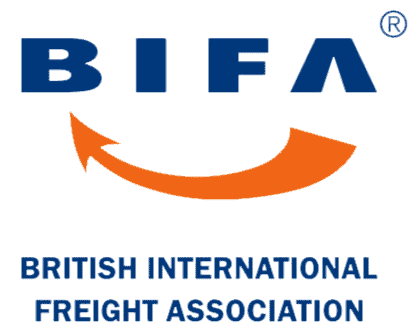
INCOTERMS
INCOTERMS are shipping terms that have played a pivotal role in defining the responsibilities of buyers and sellers when shipping goods from one part of the world to another since 1923. There are 11 different INCOTERMS, each one providing a precise way of describing transit and insurance arrangements for international consignments. Before looking at the INCOTERMS list in greater detail, we will cover the specific definition of INCOTERMS themselves.
Table of Contents
What Are INCOTERMS?
Definition and Purpose
INCOTERMS, an abbreviation for International Commercial Terms, are a set of standard trade definitions widely used in international and domestic trade contracts. Developed and published by the International Chamber of Commerce (ICC), these terms are accepted by governments, legal authorities and practitioners worldwide for an agreed-upon interpretation of the most commonly used shipping terms in international trade.
Essentially, INCOTERMS are a series of pre-defined commercial terms intended to communicate clearly the tasks, costs and risks associated with the transportation and delivery of goods. They are used to define who is responsible for shipping, insuring and clearing goods for import and export, including where responsibilities shift from the seller to the buyer.
Why Are INCOTERMS Used?
The primary purpose of INCOTERMS is to simplify communication across borders and reduce misunderstandings in trade contracts. By using INCOTERMS, both importers and exporters can avoid costly disputes and misunderstandings. INCOTERMS achieve this by clearly defining the parties’ respective obligations and, therefore, diminishing the risk of legal complications.
Importantly, INCOTERMS deal with various aspects of the shipping process, including not only transportation arrangements but the transfer of ownership of the goods, too. In addition, loading and unloading responsibilities, customs clearance and who pays for what (transportation, insurance, import/export duties, etc.) are covered under each INCOTERM. Each one is designed to provide certainty and predictability in global trade, ensuring all parties understand their responsibilities in the movement of goods.
Relevance for British Importers
For British importers, INCOTERMS are particularly significant in the context of Brexit and the subsequent changes in trade agreements and customs procedures. Understanding and correctly using INCOTERMS can help UK businesses to manage logistics, control costs and minimise risks associated with international trade more effectively.
Selecting the appropriate INCOTERM depends on various factors, such as the type of goods being transported, the chosen mode of transport and the specific requirements of both the buyer and seller, not to mention the level of risk and responsibility each party is willing to assume. For instance, terms like EXW (Ex Works) place minimal responsibility on the seller, while DDP (Delivered Duty Paid) assigns most responsibilities and risks to the seller.
It’s crucial for British importers to get to grips with the nuances of each INCOTERM to negotiate favourable terms, ensure compliance with international shipping regulations and optimise their supply chain. If not, they may face unexpected costs or cross-border delays. Alternatively, they can outsource their shipping processes and the associated risk management to a freight forwarding business with relevant experience, such as Barrington Freight.
At Barrington Freight, we specialise in making your importing and exporting straightforward. From customs clearance to finding the right commodity codes, our expert team is here to assist. Don’t let the complexities of global trade hold you back. Reach out to Barrington Freight for efficient and reliable shipping solutions.
Updates to INCOTERMS
Periodic Revisions
INCOTERMS are periodically updated to reflect changes in global trade practices. These updates consider developments in transportation, technology and international trade policies. Among the most notable updates, INCOTERMS 2020, introduced changes to better accommodate modern trade practices and address previous ambiguities.
INCOTERMS 2020 vs. INCOTERMS 2023
The transition from INCOTERMS 2020 to INCOTERMS 2023 brought further refinements to cater to evolving trade scenarios. While the fundamental principles remained consistent, certain terms were clarified or modified to enhance their applicability in diverse trade situations. These changes underscore the need for businesses to stay informed and adapt to the latest standards in international trade.
Selecting the Right INCOTERM for UK Importers
For UK importers, choosing the right INCOTERM involves assessing various factors. British firms should consider the level of control they want over the shipping process. Necessarily, this will also involve choosing how to allocate the costs and risks inherent in international shipping, which typically means assessing each option through the lens of risk management processes.
Of course, understanding the specifics of each INCOTERM is vital in making an informed decision. For instance, FOB (Free On Board) is suitable for importers wanting control over the transportation and freight costs, while DDP (Delivered Duty Paid) is ideal for those preferring the seller to manage most of the shipping process and costs. The chosen INCOTERM should align with the importer’s logistics capabilities, risk tolerance and contractual obligations. The following INCOTERMS list summarises each of the options available today.
INCOTERMS List With Brief Explanations
- EXW (Ex Works): The seller makes goods available at their premises while the buyer assumes all transportation risks and costs.
- FCA (Free Carrier): The seller delivers goods to a specified location and the buyer assumes risk and cost from that point.
- CPT (Carriage Paid To): The seller pays for carriage to a named destination, but risk transfers to the buyer upon handing goods to the first carrier.
- CIP (Carriage and Insurance Paid To): Similar to CPT, but the seller also arranges and pays for insurance.
- DAP (Delivered At Place): The seller delivers goods ready for unloading at a named destination and the buyer assumes risk and cost upon arrival.
- DPU (Delivered at Place Unloaded): The seller delivers and unloads goods at the destination while the buyer remains responsible for import clearance.
- DDP (Delivered Duty Paid): The seller is responsible for delivering goods and covering all costs, including import duties and taxes.
- FAS (Free Alongside Ship): The seller places goods alongside the vessel from which point the buyer assumes all costs and risks going forward.
- FOB (Free On Board): The seller arranges to load goods onto a UK-bound vessel but risks and costs transfer to the buyer thereafter.
- CFR (Cost and Freight): The seller covers costs and freight to bring goods to the destination port, but risk transfers once goods are loaded on the vessel.
- CIF (Cost, Insurance and Freight): The same as CFR, but the seller must also procure and pay for insurance.
INCOTERMS in Summary
INCOTERMS are an integral part of international trade, providing standardised definitions that facilitate clear agreements between buyers and sellers. For UK importers, a thorough understanding of INCOTERMS is beneficial but developing in-house expertise in this area can be costly. Consequently, many British importers seek outside help so they can better manage costs as well as the risks and logistical challenges associated with international shipments.
Looking to understand INCOTERMS better for your international shipping needs?
Get in touch with Barrington Freight. Our team, with years of expertise in international trade, is here to provide you with the clarity and guidance you need on INCOTERMS. Let us help you make informed decisions that suit your specific shipping requirements. Contact Barrington Freight today for expert advice and to streamline your international shipping process!
We’re friendly, easy to work with, honest and we don’t charge the earth.
For advice and information on shipping time from China to the UK, call 01268 525444 or email us today.


